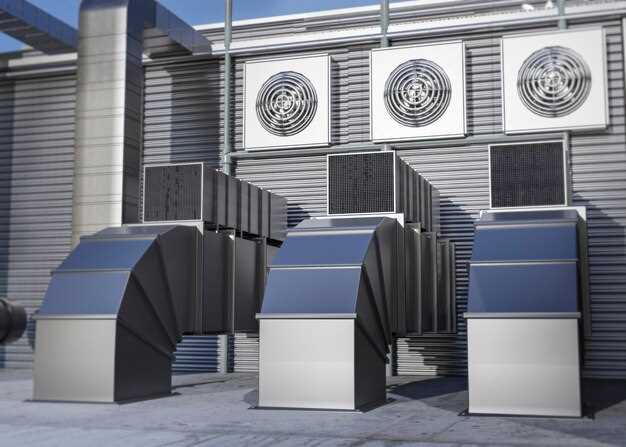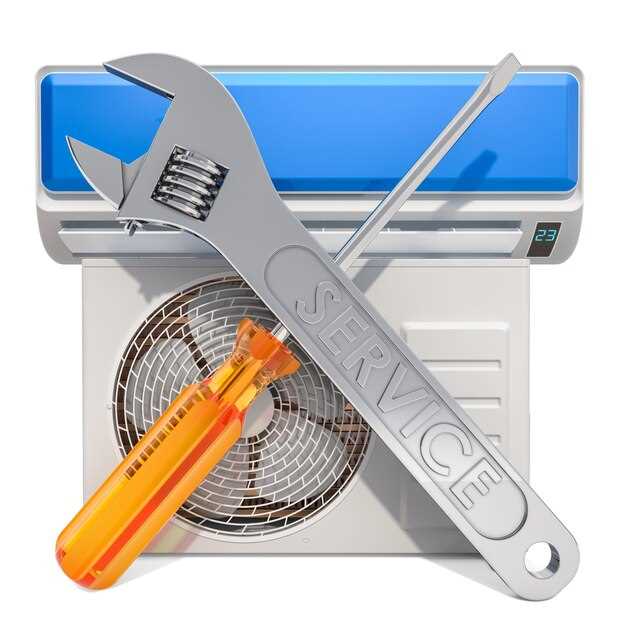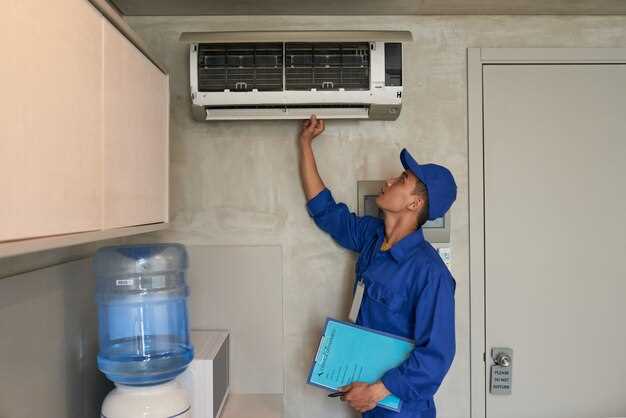

Many homeowners rely on air conditioning (AC) systems to maintain a comfortable indoor environment, especially during the hot summer months. However, a common issue that can arise with these systems is the presence of excessive noise coming from the compressor. This noise not only disrupts your peace but can also be indicative of underlying problems that require attention.
In this guide, we will explore various causes of noisy air conditioner compressors and provide practical solutions to fix these disturbances. Understanding the source of the noise is the first step towards addressing it effectively. Whether it’s due to loose components, age-related wear, or installation issues, knowing how to diagnose these problems can save you both time and money.
If you are facing issues with your AC making unwanted noise, don’t ignore it. By following the steps outlined in this guide, you can restore your air conditioner to a quieter state, ensuring optimal performance and longevity. Engaging in regular maintenance and knowing when to call for professional help can also enhance your AC’s efficiency while minimizing disruptive sounds.
Identifying Common Noises from AC Compressors
Air conditioner (AC) compressors are essential components that can generate specific sounds indicating underlying issues. Recognizing these noises is crucial for timely fixes and ensuring optimal performance.
One common noise is a loud banging or clanking sound, which often signals loose or broken parts within the compressor. This can include faulty mounts or components that have come loose over time. Prompt attention is needed to prevent further damage.
A high-pitched squealing noise typically indicates a problem with the compressor’s internal parts, such as worn bearings or a failing fan motor. If you hear this sound, it’s best to shut down the AC and contact a professional technician for a thorough assessment.
Another frequent noise is a continuous humming or buzzing sound, which could suggest electrical issues or an overload condition in the compressor. This noise should not be ignored, as it may lead to a complete breakdown if left unchecked.
Rattling noises may arise from debris or loose screws around the compressor unit. Checking for any loose items and securing them can often resolve this issue quickly without needing extensive repairs.
Finally, if the AC compressor emits a clicking noise, it may mean the relay switch is attempting to engage but failing. A malfunctioning relay can hinder the compressor’s operation, necessitating inspection or replacement.
Identifying these common noises early can help you fix problems with your AC compressor, ensuring its efficiency and longevity. Regular maintenance and prompt attention to unusual sounds are vital in keeping your air conditioning system in top shape.
Step-by-Step Troubleshooting for AC Compressors

When an AC compressor produces unusual noise, it can be indicative of underlying issues that need to be addressed promptly. Follow these step-by-step troubleshooting guidelines to identify and resolve the source of the problem.
1. Identify the Type of Noise: Start by determining the nature of the noise emitted by the compressor. Common sounds include buzzing, hissing, rattling, or grinding. Each type of noise may point to specific issues.
2. Check for Loose Components: Examine the exterior of the compressor for any loose screws or parts. A rattling noise often signifies that something is out of place. Tighten any loose components carefully to restore stability.
3. Inspect the Mounting Bolts: The compressor should be securely mounted. Check the mounting bolts for tightness. If they are loose, the unit may vibrate excessively, leading to increased noise.
4. Evaluate the Fan Blades: Listen for any sounds coming from the fan that cools the compressor. Inspect the fan blades for damage and ensure they rotate freely without obstruction. Replace any damaged blades as necessary.
5. Check Refrigerant Levels: Low refrigerant levels can cause the compressor to struggle, leading to abnormal noise. Use gauges to check the refrigerant levels and recharge if necessary, following manufacturer guidelines.
6. Inspect for Internal Damage: If the noise persists, there may be internal damage within the compressor, such as worn bearings or damaged components. In this case, professional evaluation is recommended.
7. Review Electrical Connections: Examine the electrical connections to the compressor. Loose or corroded wires can lead to operational issues and contribute to noise. Ensure connections are secure and clean any corrosion found.
8. Seek Professional Help: If all else fails and the AC compressor continues to produce noise, it may be time to consult a qualified technician. A professional can perform a thorough assessment and recommend necessary repairs or replacements.
By following these steps, you can effectively troubleshoot and address noisy AC compressors, ensuring efficient operation and comfort in your environment.
When to Seek Professional Help for Noisy Compressors

If your air conditioning (AC) unit has started to produce an unusual or excessive noise, it may be time to seek professional help. Addressing the issue promptly can help prevent further damage and ensure the longevity of your system. Here are some key indicators that indicate when to reach out to an HVAC specialist.
1. Persistent Noise: If the noise from your AC compressor continues for an extended period, it’s a red flag. Unusual sounds like grinding, rattling, or hissing may not resolve on their own and could indicate a significant problem that needs expert intervention.
2. Increasing Volume: If the noise level has noticeably escalated over time, do not ignore it. A compressor that becomes progressively louder can signify internal wear or damage, which requires immediate attention to avoid a complete breakdown.
3. Disruptive Noise: Sounds that disrupt your daily activities or sleep are not just annoying; they can also signify underlying issues. If your AC unit’s noise levels are affecting your comfort, it’s wise to have a technician assess the situation.
4. Changes in Performance: If the compressor’s noise is accompanied by reduced cooling efficiency or fluctuating temperatures, it is crucial to consult a professional for a thorough examination. Performance issues often correlate with compressor problems.
5. DIY Fixes Failure: If you’ve attempted basic troubleshooting or minor repairs without success, it’s best to stop and let a trained technician handle the repairs. Trying to fix complex issues without proper knowledge may lead to more extensive damage.
6. Age of the Unit: Older air conditioners may be more prone to failure. If your unit is nearing the end of its lifespan and begins making noise, professional evaluation may help determine whether repairs or replacement are the best options.
In summary, while some minor noises can be resolved with simple fixes, there are several scenarios where professional help is essential. Addressing a noisy AC compressor promptly not only ensures comfort but also protects your investment in your cooling system.







